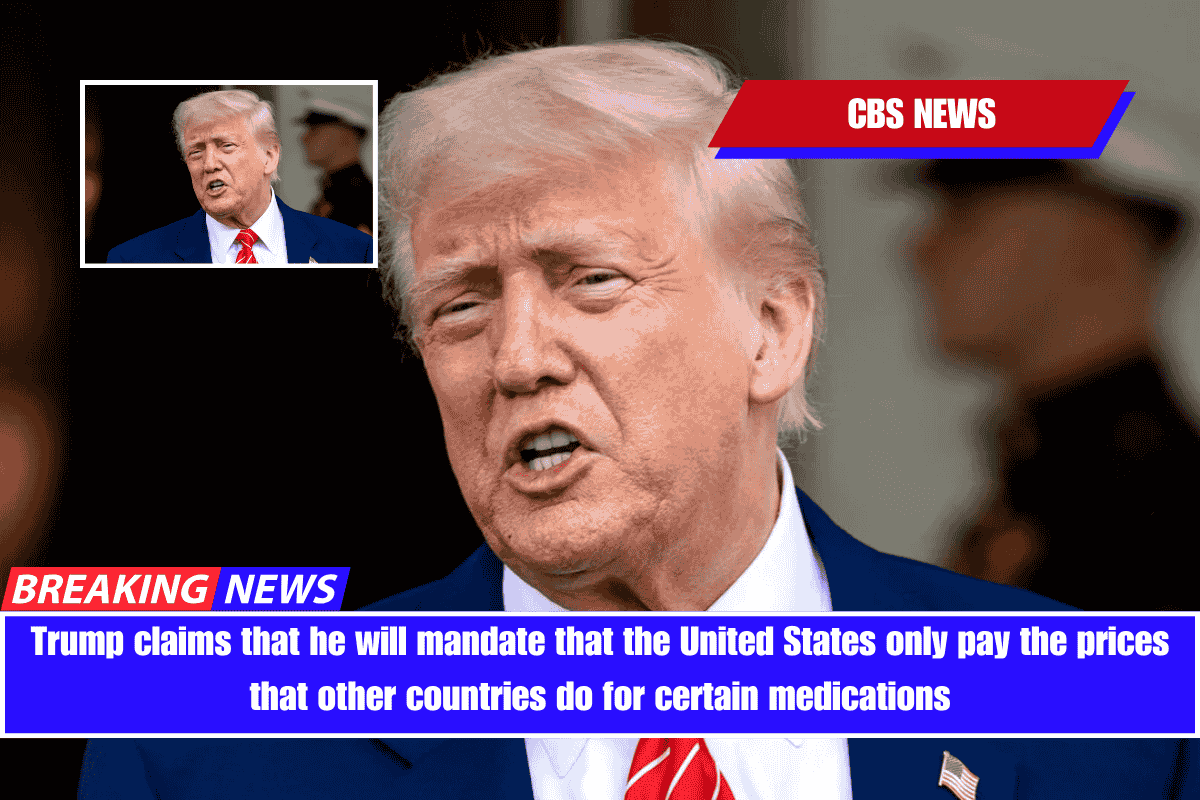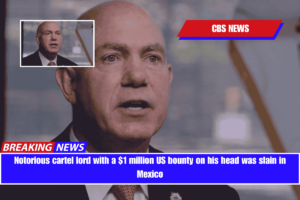President Trump plans to sign an executive order on Monday that, if implemented, could reduce the cost of some medications. It is an attempt to revive a program that he attempted but failed to implement during his first term.
Mr. Trump’s promised order will direct the US Department of Health and Human Services to tie Medicare’s payment for medications administered in a doctor’s office to the lowest price paid by other countries.
“I will be instituting a MOST FAVORED NATION’S POLICY whereby the United States will pay the same price as the Nation that pays the lowest price anywhere in the world,” the president wrote on his social media site Sunday, promising to sign the order on Monday morning at the White House.
“Our Country will finally be treated fairly, and our citizens Healthcare Costs will be reduced by numbers never even thought of before,” Mr. Trump stated.
The president hinted last week at a “very big announcement” in the Oval Office, and sources confirmed to CBS News on Friday that it would be the so-called “most favored nation” plan to reduce Medicare drug prices.
Mr. Trump’s Health and Human Services Secretary, Robert F. Kennedy Jr., also hinted at the policy on Tuesday, citing higher prices in Europe for the blockbuster diabetes drug Ozempic.
“Right now, the big impediment is really price,” Kennedy said in an interview with Newsmax. “And we’re negotiating that with the drug companies and seeing if we can at least launch some pilot programs, or if we can get the price low enough, we can make it available at government cost to everybody.”
“If we made it so that Medicaid, Medicare, and private insurance companies had to pay for it, we would double the cost of health insurance for the majority of employers in this country. “And that would be extremely destructive,” Kennedy said.
The proposal is likely to affect only certain Medicare-covered drugs administered in an office setting, such as cancer infusions and other injectable medications. Mr. Trump boasted that the plan would save the government “TRILLIONS OF DOLLARS,” but the exact amount is unknown.
Medicare provides health insurance to approximately 70 million older Americans. Complaints about the notoriously high drug prices in the United States, even when compared to other large and wealthy countries, have long enraged lawmakers from both parties, but a long-term solution has never passed Congress.
According to the proposed order, the federal government would tie the amount it pays pharmaceutical companies for those drugs to the price paid by a group of other, economically advanced countries.
The pharmaceutical industry is likely to strongly oppose the proposal.
Mr. Trump attempted to implement this rule during his first term but was unsuccessful. He signed a similar executive order in the final weeks of his presidency, but a court order later blocked the rule’s implementation, citing procedural issues during rulemaking, and the Biden administration later declined to pursue it.
The pharmaceutical industry contended that Mr. Trump’s 2020 proposal would give foreign governments the “upper hand” in determining the value of medicines in the United States. The industry has long argued that forcing lower prices will reduce profits and, as a result, undermine innovation and efforts to develop new medicines.
Court orders sought by the drug industry and others barred the Centers for Medicare and Medicaid Services, or CMS, from implementing the proposal during Mr. Trump’s first term, claiming that the government did not follow the proper rulemaking procedures to develop and implement the policy.
The Biden administration abandoned the proposal in 2022, citing court orders blocking the model and stakeholder concerns, including fears that it would deprive some Medicare beneficiaries of drugs and put a strain on providers.
The plan is likely to cover only drugs on Medicare Part B, which covers doctor’s office visits. Medicare beneficiaries are responsible for paying some of the costs associated with those medications during doctor’s visits, and traditional Medicare enrollees have no annual out-of-pocket limit.
According to a report released during the Trump administration’s first term, the United States spends twice as much as some other countries on drug coverage. Medicare Part B drug spending exceeded $33 billion in 2021.
The new order is unlikely to cover more common prescription drugs filled at pharmacies.
Mr. Trump began his first term by accusing pharmaceutical companies of “getting away with murder” and complaining that other countries’ governments set drug prices, taking advantage of Americans.
On Sunday, the president took another shot at the industry, writing that “Pharmaceutical/Drug Companies would say, for years, that it was Research and Development Costs, and that all of these costs were, and would be, for no reason whatsoever, borne by the’suckers’ of America, ALONE.”
Referring to drug companies’ powerful lobbying efforts, he stated that campaign contributions “can do wonders, but not with me, and not with the Republican Party.”
“We are going to do the right thing,” he wrote.


















Leave a Reply